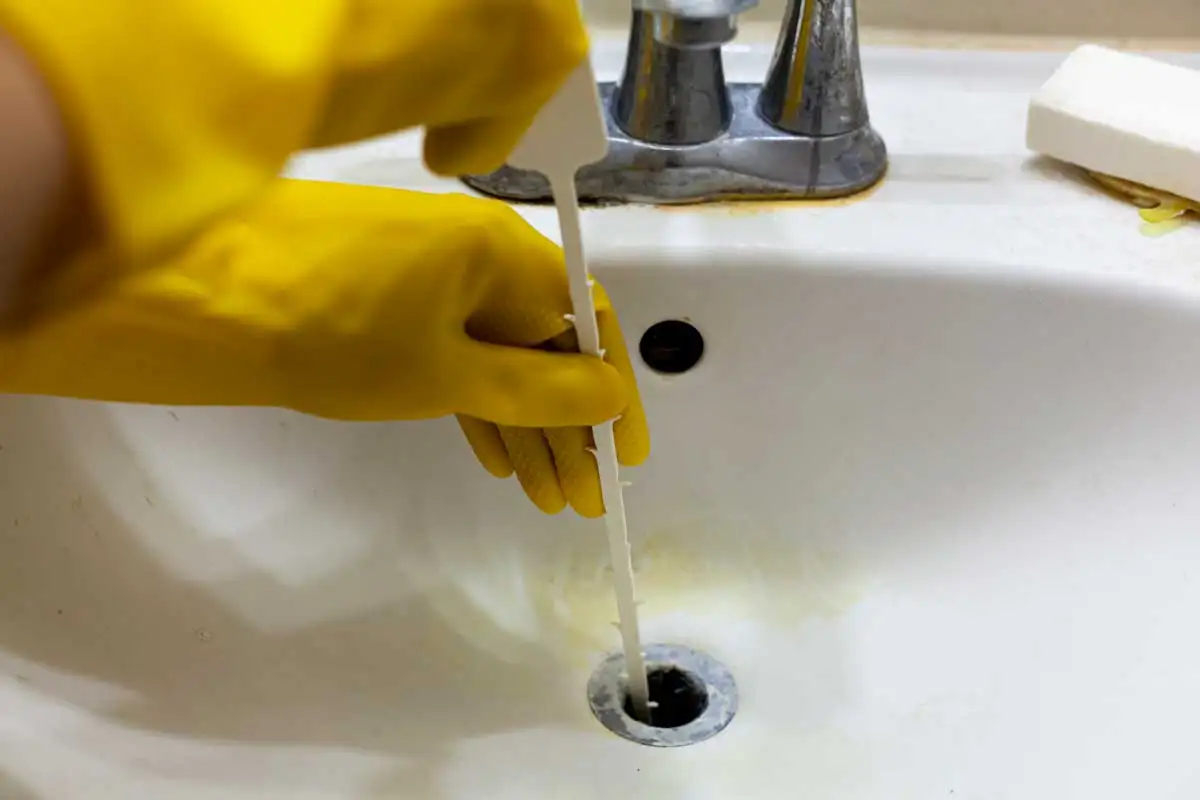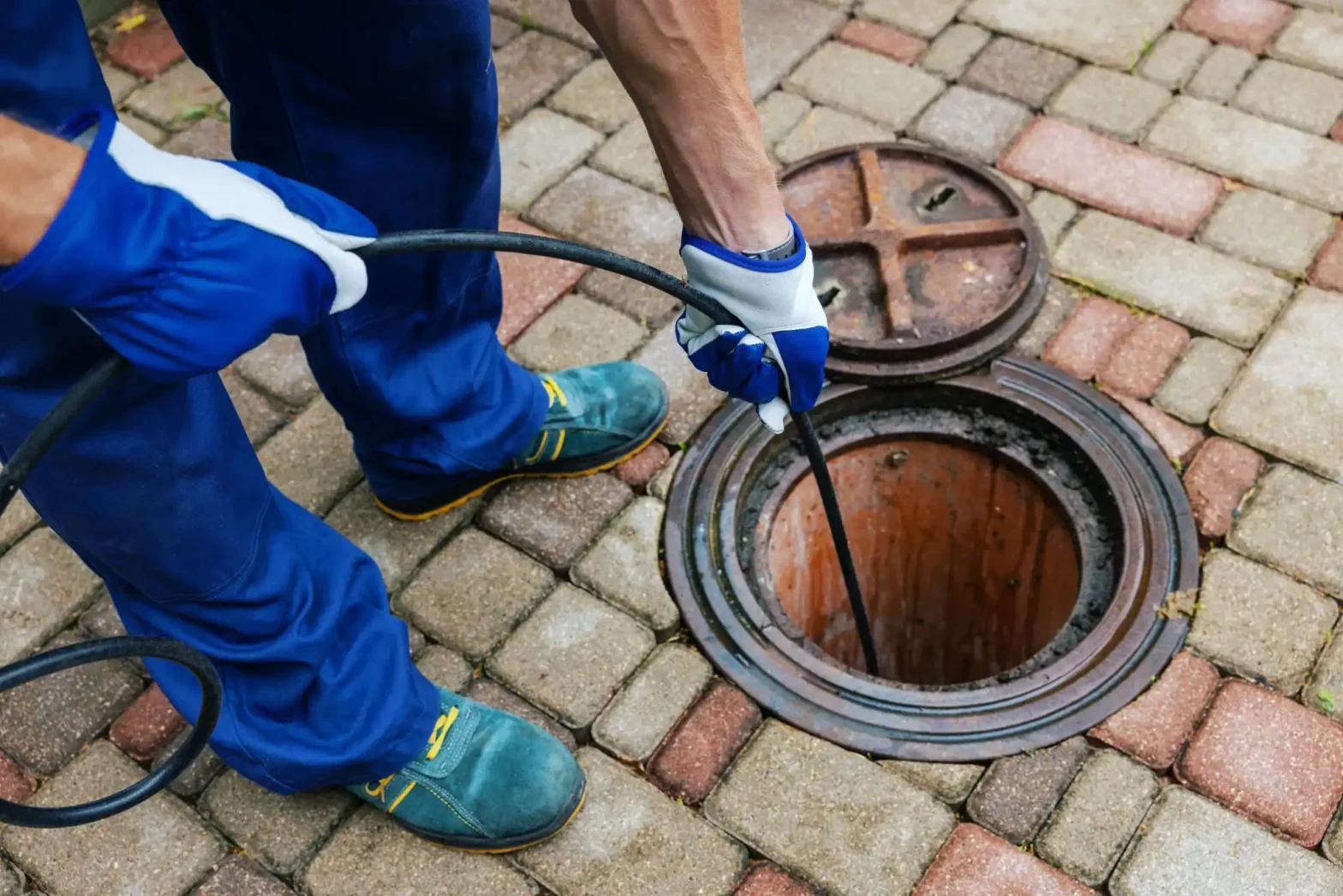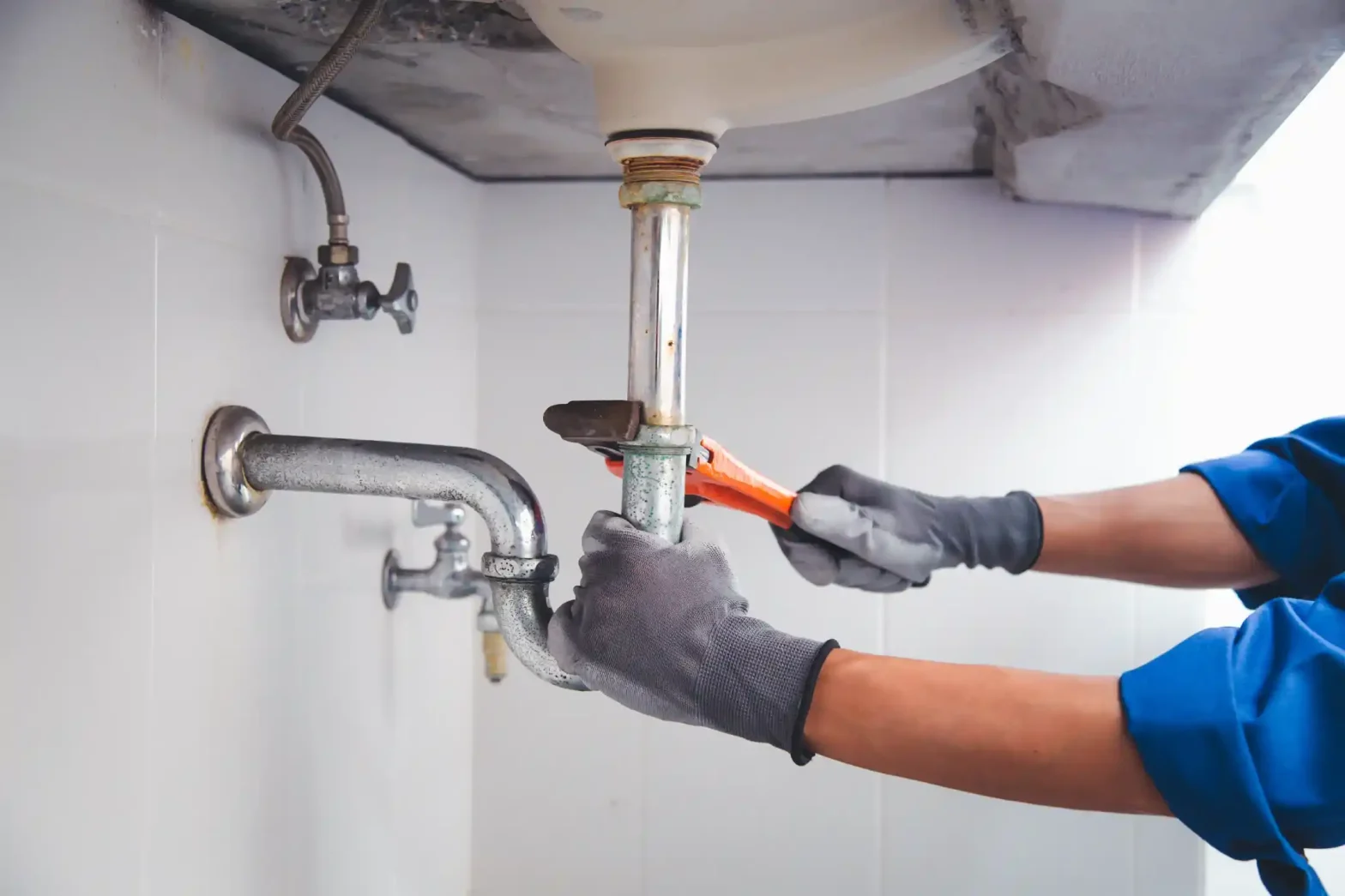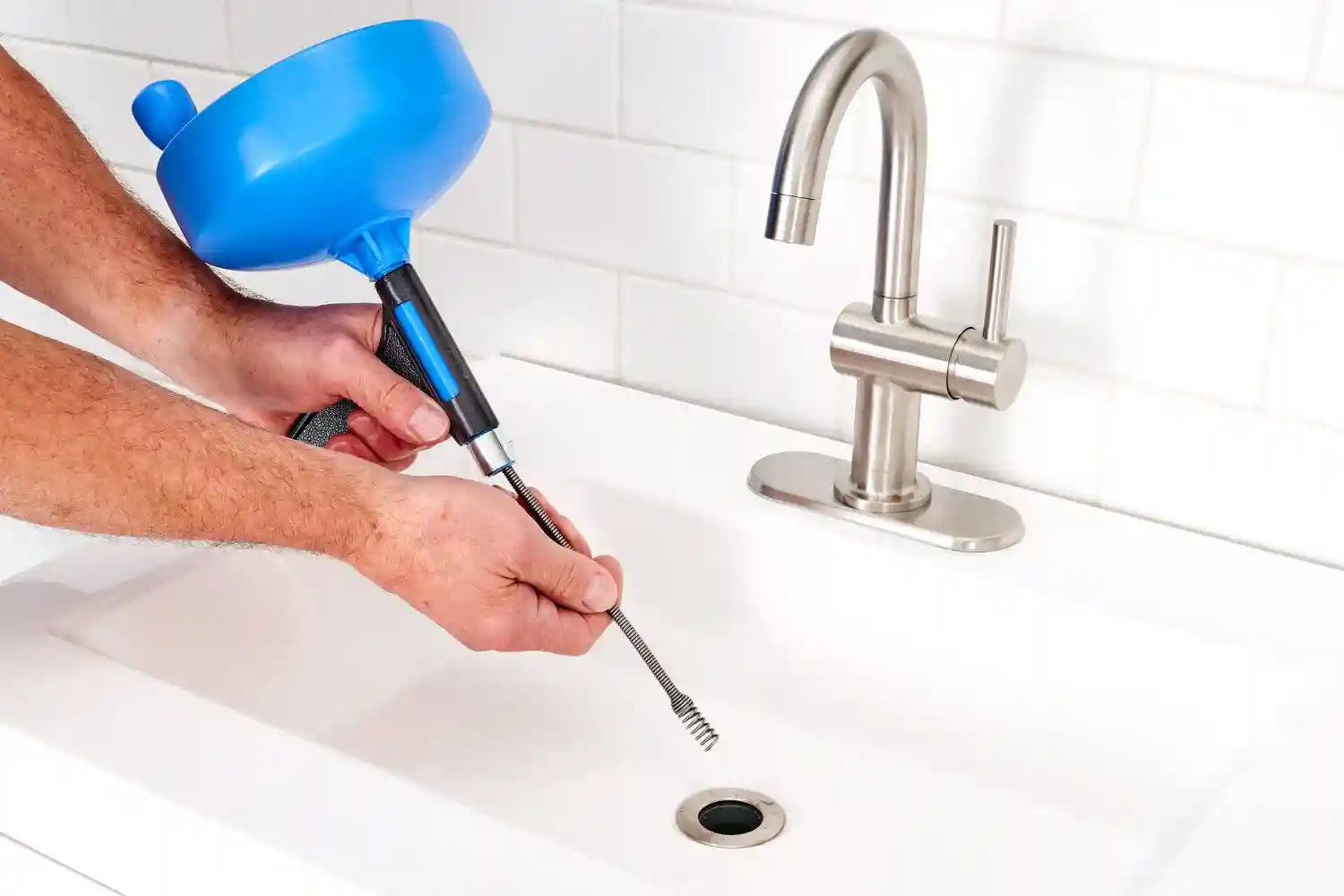The Dangers of DIY Drain Cleaning and How It Can Cost You More
Most of us have faced that annoying moment when the sink stops draining or the shower water pools around our ankles. The first instinct is usually to fix it ourselves. A plunger, a bottle of drain cleaner, or even a coat hanger feels cheaper and faster than calling a plumber. Yet those do-it-yourself shortcuts often create new problems, problems that can be far more expensive than the clog itself. In this guide, you’ll learn why many home remedies backfire, how hidden plumbing issues remain unsolved, and when a professional is the more innovative investment. You’ll also find practical tips for keeping pipes clear so you can avoid emergencies in the first place.
Harsh Chemicals: A Short Relief with Long-Term Damage
Store shelves are filled with liquid cleaners that promise to eat through hair and grease in minutes. They produce heat and caustic reactions intense enough to dissolve organic matter. Unfortunately, that same chemical action also chews on the pipe walls, PVC, copper, and even new flexible lines can all suffer. Repeated use scours the plastic until it thins, or pits the metal until leaks form. At first, the damage is invisible. Over time, it shows up as damp spots in the cabinet or stains on drywall, and by then, you’re paying for wall repairs and new plumbing. Professional plumbers rely on safer mechanical tools or high-pressure water jets that clear the clog without corroding the pipe.
Makeshift Tools: When the Cure Hurts More Than the Clog
It’s tempting to unwind a metal hanger, feed it down the drain, and twist. That wire can scratch the interior surface, punch through a brittle joint, or push the blockage deeper so it lodges beyond your reach. Rented drain snakes present similar risks. An auger whip held at the wrong angle can crack an old cast-iron line or detach a slip-joint under the sink, spraying dirty water across the cabinet. Trained technicians choose the correct cable size, control the speed, and stop as soon as resistance changes. That experience prevents a simple clog from turning into a burst pipe or a flooded kitchen.
Hidden Trouble: Clogs Are Often a Symptom, Not the Disease
Slow drains and recurring blockages may hint at severe conditions further down the line. Tree roots can invade outdoor sewer pipes, grease can harden into a thick collar that traps every scrap of food, or a section of pipe can sag and collect debris. Surface fixes that break up the immediate clog never touch these more profound problems. Because the root cause stays in place, the drain slows again in weeks, sometimes days, and each new backup carries the threat of sewage spilling onto floors. Licensed plumbers thread a tiny camera through the pipe to see exactly what’s going on. This video inspection reveals cracks, offsets, roots, and collapsed sections that no chemical or wire hook could fix.
The Real Cost of a “Free” Weekend Project
A bottle of cleaner or a rented auger appears cheap, but count the hidden costs. There’s extra gas for several hardware-store trips, buckets and towels to catch overflows, and lost weekend hours crouched under the sink. Worse, there’s the possibility of damaging pipes or fixtures, which means paying a professional to redo the work. Meanwhile, that clog still lurks and may even have grown larger. When you hire a plumber from the start, you pay once, get a lasting solution, and free up your time for something you enjoy. Long-term, the upfront service fee is small compared with the price of repairs after a DIY misstep.
Simple Habits That Keep Drains Clear
Prevention starts with what goes down the pipe each day. Use a mesh screen in the shower and sink drains to catch hair, soap chips, and food scraps. Pour cooking grease into a can, let it solidify, and throw it away instead of rinsing it down the sink. Once a week, run hot water for a full minute after washing dishes to flush away soft buildup. If you want an extra boost, pour a half cup of baking soda followed by a cup of hot vinegar, wait ten minutes, and finish with another hot-water rinse. These mild household ingredients loosen residue without harming the line.
Warning Signs That Call for a Professional
Certain clues mean the problem lies more profoundly than a surface clog. If more than one fixture backs up simultaneously, the blockage is probably in the main line rather than a single trap. Gurgling sounds from the toilet when you run the sink, foul smells rising from floor drains, or water that fills one basin while another empties all signal trouble beyond the reach of hand tools. Slow drains that return shortly after a quick fix almost always hide a more significant issue. At that point, skip the chemicals and call a licensed plumber who can diagnose the system as a whole.
What a Professional Brings to the Job
Plumbing specialists arrive with equipment made for the task. Motorized augers can spin a cable long enough to reach fifty or even one hundred feet, clearing roots and hardened grease. Hydro-jetting machines shoot pressurized water that scours pipe walls until they’re nearly as clean as new, restoring full flow without detergents. Video scopes send back live images, allowing the technician to show you where damage or buildup occurs and to prove the line is evident when the work is done. Because professionals train on different pipe materials and ages, they know how much force each line can tolerate and how to protect delicate fixtures while they work.
Dollars and Sense: Comparing DIY to Professional Service
Picture two scenarios. In the first, you spend twenty dollars on a drain cleaner and forty on a rented snake, plus half a Saturday fighting the clog. Six weeks later, the drain slows again, and this time, chemicals splash back, discoloring the finish of your sink. Eventually, you will call a plumber who will charge for the clog removal and replacement of the corroded trap. The total outlay is several hundred dollars and two lost weekends. In the second scenario, you call the plumber immediately, pay a single service fee, and the drain stays clear for years. When you divide that cost across the months of peace of mind, professional service often wins hands down.
Recommended reading: DIY vs professional drain cleaning services, which is best
All Star Plumbing Is Ready to Help
Clogs may seem minor, but the damage from a poorly executed fix can be significant. All Star Plumbing’s certified technicians use industry-leading tools to clear blockages, inspect lines, and prevent repeat problems. We treat your home respectfully, explain the findings in everyday words, and leave the workspace clean when finished. Whether you need routine maintenance or an emergency response, we’re here 24/7 so you never have to gamble with your plumbing again. One call puts experience, safety, and lasting results on your side.
Questions Homeowners Often Ask
Q: Are chemical cleaners ever safe for pipes?
A: Most high-strength cleaners eat away at the pipe and clog. Even limited use can shorten the lifespan of plumbing. Professional methods remove debris without that risk.
Q: Can I damage a pipe with a store-bought snake?
A: Yes. If the cable is too big, spun too fast, or forced around a tight bend, it can scrape the interior or loosen a joint. Trained plumbers match the tool to the pipe size and material.
Q: Is professional drain cleaning costly?
A: The initial visit costs more than a bottle of cleaner, but it prevents pipe damage, repeated clogs, and water bills from hidden leaks, saving money over time.
Q: How do I avoid clogs altogether?
A: Catch debris with drain strainers, keep grease out of sinks, flush pipes weekly with hot water, and schedule professional maintenance once a year to spot problems early.
Clogged drains tempt us with easy solutions, yet chemicals and makeshift tools rarely solve the complete problem and often create more considerable expenses down the road. Understanding the hidden risks and adopting smart daily habits can protect your plumbing for the long haul. And when trouble does strike, remember that expert help is only a phone call away. All Star Plumbing delivers safe, thorough, and lasting relief, no guesswork, hidden damage, just clear pipes and peace of mind.







